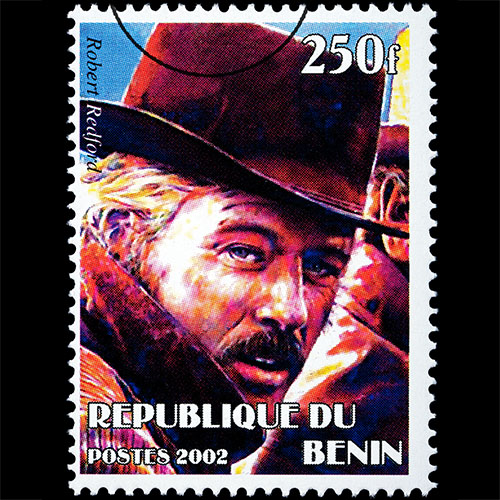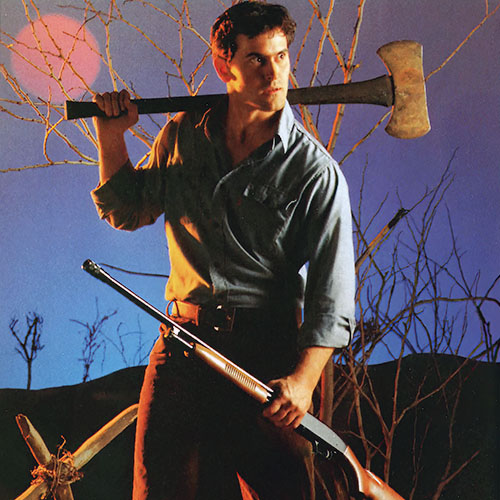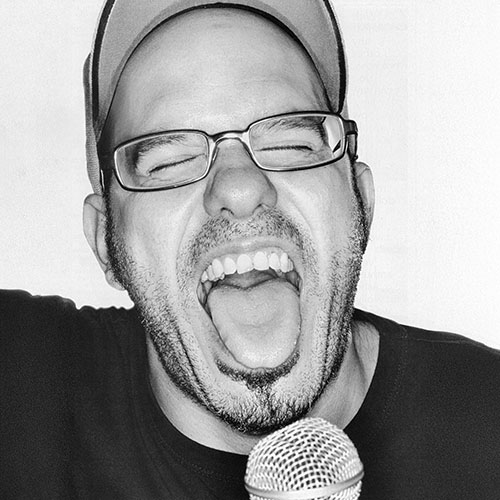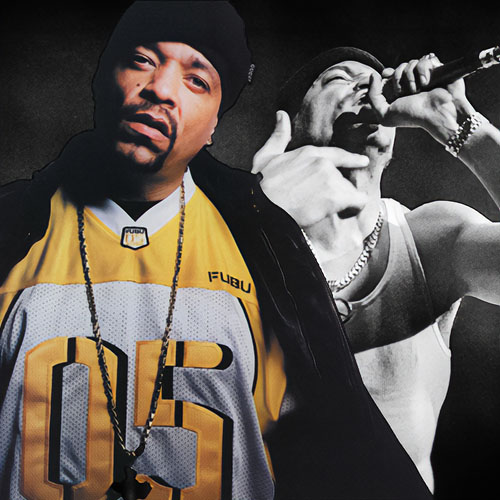With “Clerks II” behind him, the once-indie cinema wunderkind is doing a few other things on the side — like acting in the upcoming movies “Catch and Release” and “Southland Tales,” blogging about anything and everything (including a candid memoir about his friend Jason Mewes), and, of course, making us laugh.
Back to Work
It started with a bunch of maxed-out credit cards, a stock of black-and-white film, and an eager young director who had just dropped out of film school in Vancouver. Kevin Smith had the right sense of humor, the right amount of talent, and the two disaffected register jockeys who hung around a convenience store pontificating about their lack of direction and saying “fuck.” A lot. It won at Cannes, got picked up at Sundance, and became a focal point for the slacker generation. Almost 15 years later, Smith decided that Dante and Randal, the clerks in question, needed an epilogue to their misspent youth.
Smith has enjoyed the kind of success directors wish for. Not critical success (with the exception of Chasing Amy, his most critic-friendly feature), but the kind of rabid fan base usually reserved for Trekkies or the KISS Army. He created a View Askewniverse for himself—a cinematic universe where guys like Jay and Silent Bob exist, everyone is from little-town New Jersey, and God plays skeeball in Asbury Park. He has two comic-book shops, one on each coast, and a bevy of merchandise, from inaction figures and comics to T-shirts and memorabilia. He travels the country doing college Q&As, addressing fans for hours at a time. And as beloved a director as Quentin Tarantino is, he doesn’t have a toy in his likeness.
But over the years, times have also been tough in the View Askewniverse. Smith received abysmal reviews for his 1994 follow-up film Mallrats (which actually found its audience on home video much later) and scathing criticism about the “Bennifer” casting of Ben Affleck and Jennifer Lopez in Jersey Girl. He’s fought the MPAA and the Catholic League. And he’s had to help his longtime friend Jason Mewes (the Jay to his Silent Bob) battle a heroin addiction.
With Clerks II, Smith closes the book on his angry young men. Like Smith himself, Dante and Randal have left their life behind the convenience-store counter. Unlike him, they didn’t move very far … just over to the local fast-food joint. They still don’t like the customers, and they’re still searching for a little direction in life. But we’re suspecting, since Smith started at a convenience store in Jersey and got a few breaks, it’s safe to say that his boys will move on to rich and successful lives. Snoogans!
Before the MPAA watched Clerks II, you said the movie was too raunchy and might have to come out unrated.
We screened for the MPAA and they gave us an R, which is astounding and surprising to say the least, considering they tried to give Jersey Girl an R. I had to fight them to get it down to a PG-13. We thought for sure this movie was going to get an NC-17 and we’d have to either make cuts or fight.
Did you make any cuts?
We made no cuts whatsoever. The one shot I was so worried about was Zak as the donkey fucker, spitting in his hand. But it’s in there. It passed muster.
I didn’t think anything in the movie was especially graphic.
I agree completely. There was nothing in Clerks that was so graphic either, but we got an NC-17 for that.
You were interviewed in the documentary This Film Is Not Yet Rated. Is it still a mystery how the rating system works?
It completely is. I have no idea how we skated [through] with an R this time around. Maybe it was because it was Friday, everyone was in a good mood, and the movie made them feel good. That’s the one thing that [producer Scott] Mosier has said over and over again: “Yeah, there’s some really risqué and raunchy stuff in the movie, but at the end of the day there’s a lot of heart to the movie. It may just balance it out.” It doesn’t just hit you in the face like a fucking sledgehammer with asstomouth and huge clits and a donkey show.
Do you think they’re more lenient now because you’re an established director?
Maybe they said, “What’s the fuckin’ point? All that’s going to come of this is [Clerks II will] get a big press push. I’m sure this dude—with his blogs and his fucking press-friendly demeanor— will go out there and scream like a child about how unfair it is, and censorship, and NC-17.”
I’m sure that’s exactly what you would have done.
I’ve got a big mouth when I need to [laughs].
I came into this interview with a list of prying questions, but I crumpled it up because there’s nothing personal I can ask you that you haven’t already addressed in Q&As, blogs, and on your message board.
I tend to over-speak, I guess. Did you read the Mewes blog series? [Editor’s note: Smith posted a serialized blog about Mewes’s struggle with drug addiction on his Website, SilentBobSpeaks.com]
Was that series something you always meant to do, or was it inspired by the New York Post report that Jason had sex with Nicole Richie in a bathroom—a story to which she responded, “Eww, like no way”?
I was so pissed. The really irritating thing was, it marginalized Mewes to “actor, former drug addict.” That trivializes who he is. So I started writing, and I had no idea how long it would take. I thought it would be four pieces and I’d be out. But as I was writing I kept remembering stuff. It was kind of cathartic, because it’s stuff I’d never addressed to the outside world.
Before I even started, I brought Mewes in. He really liked it. In a weird, rare sense of introspection, he was like, “It’s interesting to see somebody else’s take on the whole thing.” I was surprised and delighted by just how many people dialed in and really related to it. On MySpace you get all this feedback. A lot of cats have written about having gone through a similar situation with family members, and it meant something to them to read that. I thought it was kind of nice.
Are you still afraid he’ll go back to using?
Oh, forever. It’s not so much the fear, but the awareness that it’s not like, “Well, that’s all wrapped up and we can move on with our lives.” As a dude who struggles with weight gain all the time, I lose 50 pounds over the course of a year or two, [then] I put it all back plus some—I get it. It’s a battle that has to be fought all the time. It would be stupid and naive of me to think, He’s done, this will never happen again. He was the one who brought it up at Christmas, when I was just like, “Hey, man, if you want to give me something, just don’t ever do drugs again.” He said, “I can’t make that promise, but I’ll promise that I’ll never lie about it.” If that’s as good as it gets, that’s as good as it gets. One-day-at-a-time kind of thing.
“You don’t fuck with a dude who grew up fat, man. I’ve honed that wit razor-sharp over the years.”
You were one of the first stars to use the Internet to communicate with fans. How do you feel about its evolution?
I like Web version two. It’s a lot more interesting than Web version one. Back in the day, it was a lot of Websites going, “Here’s all your content.” Now it’s people going, “Here’s a framework, you provide the content.” It’s amazing how it democratizes even something that seemed as democratized as the Web. Suddenly everybody’s story is interesting. It reminds me of [what] Francis Ford Coppola said a few years ago about how the future of film was some little girl in Middle America with a video camera. Something like MySpace or YouTube makes that a reality.
But do you have any significant issues with the Web? You’re famous for over-the-top rebukes to detractors on Ain’t It Cool News.
I’ve reached a point where if somebody says something on the Web like “Your movies suck,” I don’t get out of shape about it, because I can’t argue with somebody about their opinion. The only time I’ll respond to somebody is if they say something about me that’s factually inaccurate. These guys have the freedom to get on the Web and say whatever they want about my flicks; shouldn’t I have the freedom to respond?
You definitely should, but why bother? It’s not the New York Times—it’s just some kid on the Internet.
I know, but anything in print has this creepy potential to become factual. It’s just best to nip that shit in the bud, if it is shit that you can nip in the bud. And I won’t lie … sometimes it’s fucking fun. They make it too easy. You get to tee off on what they’ve written. I’ve cracked myself up reading some of the responses. You don’t fuck with a dude who grew up fat, man. I’ve honed that wit razor-sharp over the years.
You’ve been self-effacing about Jersey Girl, but do the critics ever get to you? Like those who said Clerks II was a cheap return to the well.
This time around, it wouldn’t get through the armor. Maybe that’s something that just comes with age. I’ve been on the Web for about ten years, and maybe it took me ten years to build up a hard enough shell to let things roll off my back. Scott [Mosier] has always been real Zen about it, saying, “What do you care? You know how you feel about your stuff. What do you care what they feel about your stuff?” I was like, “Because I care what the people who like the stuff say.” So if I’m going to give that audience credence, I have to lend the other side credence as well.
It’s also part of your job to gain the favor of an audience. You can do small movies forever, but I’m sure industry moguls like Harvey Weinstein want the movies they do with you to make money. Is it hard to work for the Weinsteins?
Hard is my old man having to get up at eleven o’clock at night to go work a night shift at the fucking post office and then come home at seven in the morning with that look in his eyes that speaks volumes about how soulkilling his position was. That kind of shit is hard. In relative terms, there are moments with the brothers Weinstein that aren’t all fucking sunshine and roses. Sometimes you pound your head against the wall saying, “Why can’t they see it my way?” Thankfully [screening the film at] Cannes worked out, and thankfully, in particular, this ratings thing worked out.
Tell me about Southland Tales. A story in which America is on the verge of a social, political, and economic collapse and people carry government IDs seems oddly prescient.
[When I first read the script it was] very much like Pulp Fiction crossed with Robert Altman’s Short Cuts. [Writer and director] Richard [Kelly] said, “I want you to play this guy in the movie,” and I said I’ll totally do it. A year and a half later I got [my parts] sent to me. I said, “This doesn’t look familiar to me at all.” It was as if he’d taken that script, which was a brilliant fucking script already, and put it through the [Donnie] Darko filter … so suddenly it wasn’t just brilliant, but mysterious and fucked up and weird. Either it’s one of these scripts where he’s going to win an Oscar or people are just going to be like, “This dude’s an idiot.” There’s no middle of the road. Nobody’s going to walk out of that theater going, “It was just all right.”
It has a great ensemble cast, with the Rock, Seann William Scott, Sarah Michelle Gellar.… Who are your scenes with?
I share a lot of scenes with Janeane Garofalo, but she wasn’t there when I shot and I wasn’t there when she shot. Richard’s like, “It’s weird, because it’s like you were on set for each other. Your chemistry together is pretty good.” I share two or three scenes with the Rock. One of those scenes we were shooting at four in the morning, and I’m in a wheelchair with tons of makeup on my face. I look like I’m 60, and it’s me, the Rock, Zelda Rubinstein from Poltergeist, and Booger—Curtis Armstrong— and there’s a carcass in the room. I was like, “This is the most interesting shooting experience I’ve ever been involved with in my life.” I never in a million years saw myself being in a scene quite that way.
Why are you creating a prequel comic-book series based on the movie for Richard Kelly?
He had this great idea about doing tie-in books. The movie will live on its own, but the books give it so much backstory.
What’s your next project?
It’s a comedy, and it’s not set in the View Askewniverse. I was thinking, Do I want to wedge it into the View Askewniverse? And then I was like, “This could stand on its own.” The fun thing about Jersey Girl was making a movie that didn’t rely on references to the other movies. I’d like to have that experience again.






















